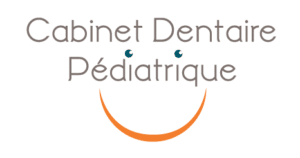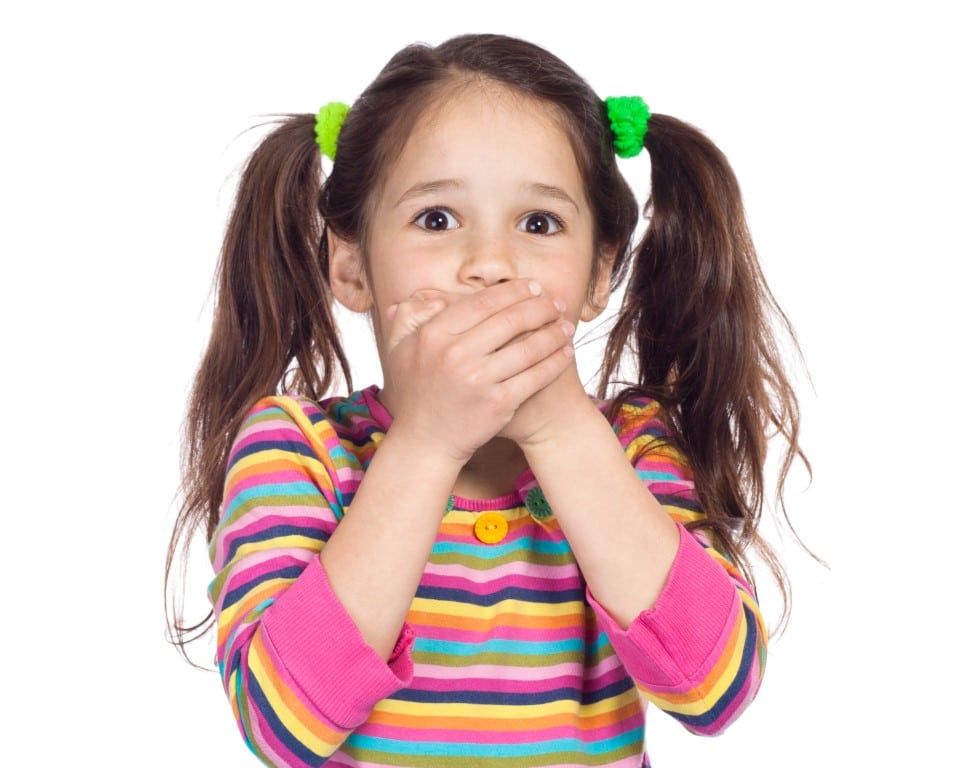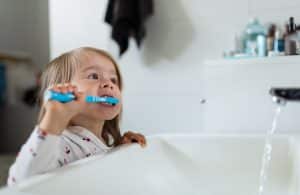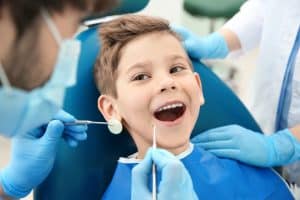Bad breath, or halitosis, is a common symptom in adults, but not only. Children are also prone to bad breath.
At night, we secrete less saliva, which favors the proliferation of bacteria in the mouth and can cause bad breath. This is considered abnormal when it persists during the day and bothers those around us.
Halitosis is not a disease in itself but can be a symptom of an oral disease or infection. Generally, bad breath in children is a sign that something is wrong.
A simple consultation with your pediatrician can help you determine the origin of the problem. Some causes are infectious and others are functional.
Causes and treatments of bad breath in children
When the cause of your child's bad breath is detected, your doctor will recommend an appropriate treatment.
After consulting with your pediatrician and depending on the cause identified, he or she may refer you to another health care professional for treatment.
Bad breath in children: common risk factors
The disease
If your child has recently complained of a sore throat, headache or nasal congestion, you may have the source of the problem.
In the case of sinusitis, fluids and bacteria accumulate in the sinuses and throat. The proliferation of bacteria in the throat is one of the main causes of sinusitis. causes of bad breath in children.
The scenario is almost identical in the case of angina. The tonsils swell and this infection can lead to unpleasant breath.
Once these diseases are treated and the infections are gone, the halitosis disappears.
Presence of a foreign body in the nostrils
In their discovery phase, babies and toddlers tend to touch everything.
It may not be the first thing that comes to mind, but it is possible that your baby or child's bad breath is caused by something in their sinuses.
Blocked nasal breathing forces the child to breathe through the mouth, which promotes the proliferation of bacteria and therefore induces unpleasant breath.
If you think your child is affected, see a pediatrician or ENT specialist to check for and remove the foreign body.
Gastric origin
Strong breath in babies can be caused by esophageal reflux disease. The acidity of the milk in the stomach causes acid reflux and with it bad breath in the infant.
An adjustment of the diet or the type of milk may be enough to correct this problem. But if it persists, especially if the halitosis is accompanied by frequent vomiting, it is imperative to consult your doctor.
Bad breath in babies and children: oral origin
Bad breath in babies and children is usually caused by infections or functional oral problems.
Tooth growth
The appearance of baby teeth is the first cause of strong breath in babies. Teething is usually accompanied by inflammation in the mouth and throat:
- Vegetation
- From the throat
- Tonsils
- Etc.
Bacterial growth in these areas can cause bad breath in babies.
Infant thrush and strong breath in babies
This infection, caused by a fungus called candida ablicansIt is caused by an imbalance in the intestinal flora. It is manifested by the appearance of white patches throughout the oral cavity: cheeks, white tongueetc.
Rare in infants over 6 months of age, this disease can also cause bad breath in babies.
An antifungal treatment is usually prescribed by a doctor. To complement it, you can also :
- Adapting the child's diet to semi-liquid
- Sterilize pacifiers and all objects put in the mouth
- Remember to wash your hands and your child's hands regularly.
Functional problems
If your baby or child has bad breath, it may be the result of functional dental problems. Bad tongue positioning, poor chewing or sleep apnea can cause bad breath.
Cavities
As soon as the first milk teeth appear, your child is likely to develop cavities. This disease takes the form of holes in the tooth in which bacteria grow. The proliferation of these bacteria in the cavity can be one of the causes of bad breath in children.
Cavities are not always visible to the naked eye. This is why it is important to see a dentist regularly from the age of 2 to 3 or as soon as the first milk teeth appear. Even if these teeth will fall out, milk teeth must also be treated if cavities are present.
The causes of bad breath in children or babies are therefore diverse. In order to correctly identify the origin of the problem, ask your pediatrician first. If you suspect that your child's halitosis is of oral origin, consult a pedodontist.
Dr. Agachi is a dentist for children located in Paris. His team and his office welcome you in a warm and playful environment. If you have any doubts about the existence of an oral problem in your child, do not hesitate to call to schedule an examination.
Frequently asked questions about bad breath in children
There are many causes of bad breath in children. It can be an infectious ENT disease, thrush, tooth decay, GERD, or even a simple teething problem.
In case of dental disease or cavities, your pediatrician or pedodontist will be able to suggest the appropriate treatment. In case of bad breath due to teething, you can clean your child's teeth and tongue with a toothbrush or a wet compress.
If your child's bad breath persists, don't hesitate to consult your pediatrician. He or she will be able to determine the cause and treat the problem or refer you to a specialist if necessary.




